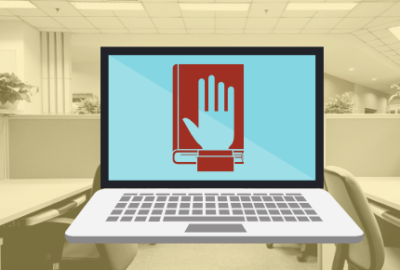

The Air Force's top acquisition official says his service has seen so much success with virtual events that it's never going back to in-person-only industry...
Like everyone else, the Air Force has had to move its conferences online because of the coronavirus pandemic. But after a few experiences with virtual meetings, the service’s top acquisition official now sees them as the preferred way of interacting with industry — not as an emergency stopgap measure.
As the Air Force scrambled to convert its industry meetings to virtual equivalents, it was overwhelmed by the response — in the best possible way.
The Spark Collider and Pitch Bowl, which was already billed as the largest small business event in government history when it was planned as an in-person gathering at this year’s South by Southwest conference in March, wound up attracting more than 5,000 attendees after it was moved online. Several weeks later, the service hosted an online kickoff event for Agility Prime, the Air Force’s program to jumpstart the development of flying cars — 57,000 people watched online.
Those experiences have convinced Will Roper, the assistant secretary of the Air Force for acquisition, technology and logistics, that even after the pandemic is over, the Air Force should never again host a physical event that doesn’t have at least an option for virtual attendance.
“This is going to be the way that we engage now,” he said. “We will still do conferences in physical locations, but we’ll never do them the way we did in the past,” he said. “We are going to continue to have this virtual overlay so that people can join without having to travel, they can be part of the community, and where social media, the ability to have queries and polls — to engage as opposed to just listen — is part of how we do business.”
Roper said the relative handful of online events the Air Force has conducted in the last few months have “democratized” its engagements with industry. Tiny firms who’d never be able to afford attendance at a large in-person conference — let alone several of them per year — get the same opportunities for interaction as big companies who’d normally send large business development teams.
“Physical events may be required in the future, but my commitment is to make the virtual event the event: The real thing is happening online,” he said. “The first time we do one of those, we’ll take notes and try to make sure that the benefit that we’ve seen with this massive collaboration online continues. But if we find that we can’t, maybe our events just become virtual-only, and we just accept that that’s the way we do business now.”
The Air Force is already planning at least two large online-only events. The upcoming Hack-a-Sat competition, which was to have happened in conjunction with the new Aerospace Village at the annual DEF CON conference, is scheduled to host an initial qualifying round starting next Friday. In the final round in August, white hat hackers will be tasked with trying to hack into “representative” military satellite and ground control systems.
And in November, the service’s Rapid Sustainment Office will host an virtual version of its Advanced Manufacturing Olympics, previously planned as a physical event in Salt Lake City. Teams will compete in several different types of competitions, including one in which they’ll be given a random box of aircraft parts and asked to build copies from scratch without their underlying design documentation.
“I think this is tailor-made for a virtual event. As you start thinking through it, my goodness, it makes a ton of sense,” Roper said. “We’d have talks and breakout sessions, and yes, you can do that kind of thing in a ballroom, but for people in the back it’s hard to see. The virtual event breaks that down and gives everyone a front row seat, access to the speaker and the ability to engage. And in terms of watching the events occur, rather than ship the machines in, just let people take video where the machines already are, and do some time lapse so we can watch it happen quickly. I’ve been so passionate about bringing in additive manufacturing to help on aircraft parts availability, and I thought we’d be doing this live in Salt Lake City. But now I’m more excited about the virtual event.”
Copyright © 2025 Federal News Network. All rights reserved. This website is not intended for users located within the European Economic Area.
Jared Serbu is deputy editor of Federal News Network and reports on the Defense Department’s contracting, legislative, workforce and IT issues.
Follow @jserbuWFED

